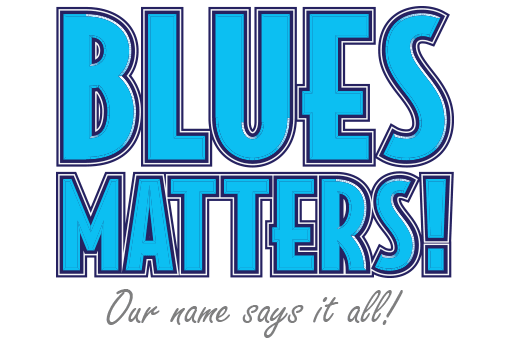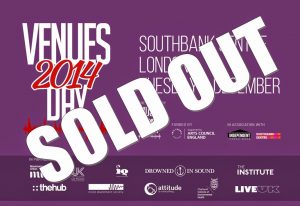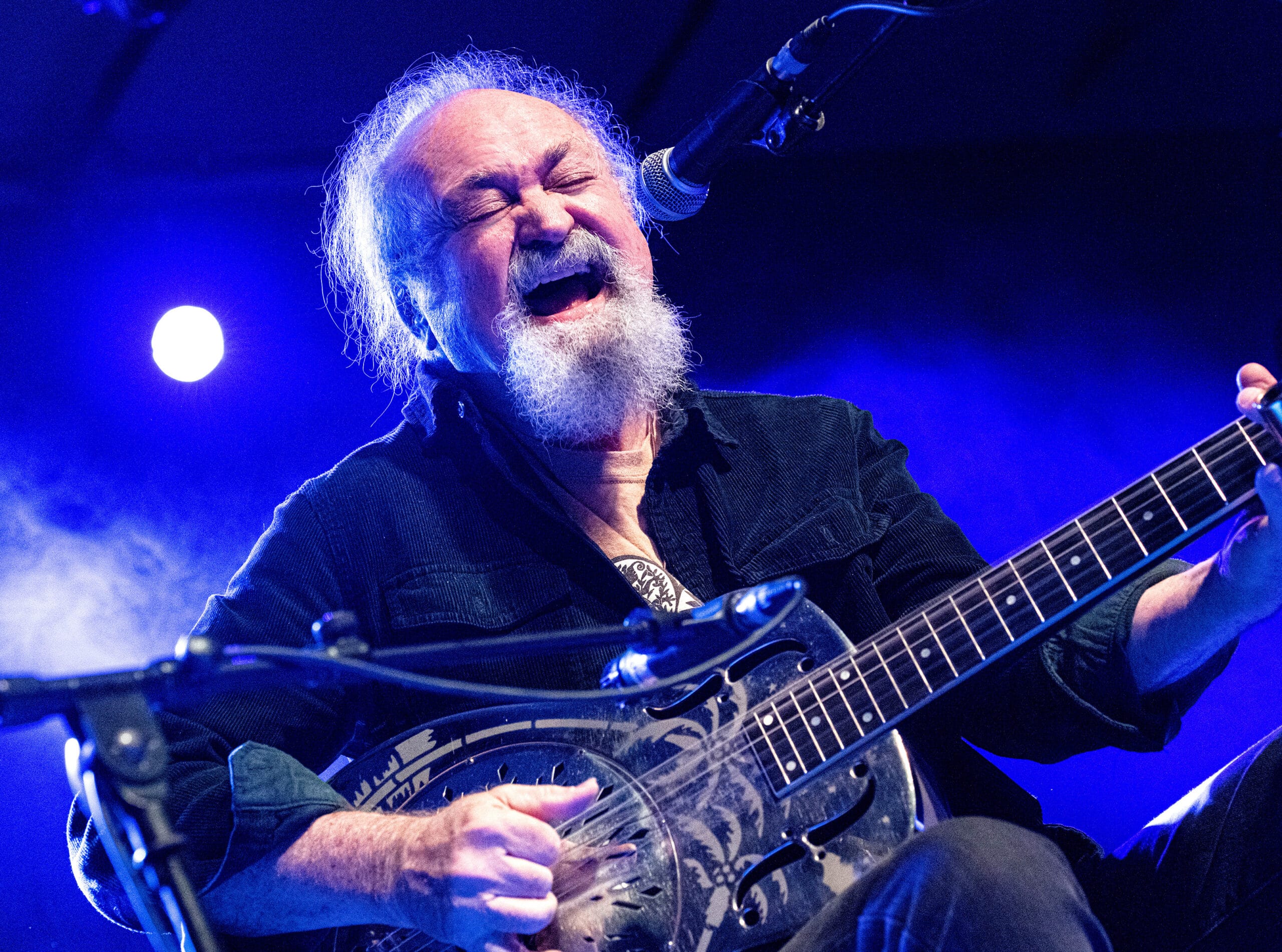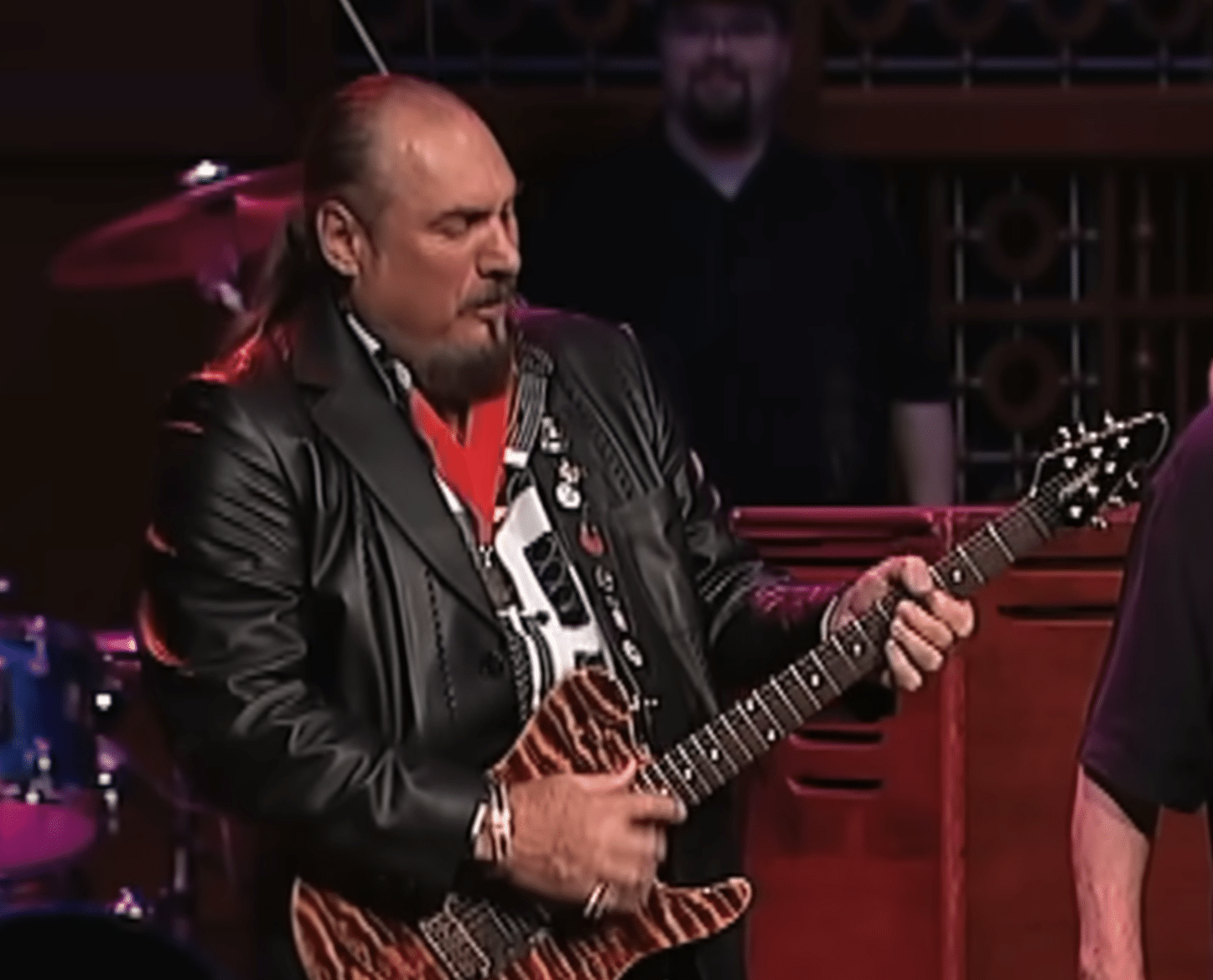There is a lot that is right about the British music scene – great artists, great venues, enthusiastic fans, top music schools and colleges, and a shedload of history that reverberates across the world. There are also a lot of problems – venues closing, erratic live audiences, shoddy treatment of musicians and fans alike, prices (too high or too low), and so on.
However, what happens if you get around three hundred and fifty of the country’s venue owners and managers and music bookers, agents, PR’s, and various industry body representatives into one place? They talk. They highlight the good, the bad, and the ugly, and discuss what to do about those things. So they did in the Purcell Room and adjacent space in London’s Southbank Centre, on Tuesday 9th December 2015.
The day was organised by the Music Venues Trust, a body that was founded in January 2014, and whose purpose is to ‘to protect the UK live music network’. In holding this event, the Trust effectively helped to create a UK live music network by getting people together and forming relationships along the way with many more people than those actually present.
Two things were most impressive about the event, apart from the fact that it happened at all.
One, while the Trust clearly has ideas of what it wants to do, it was listening, big time. No pushing through a particular agenda, no railroading through of votes from those present, but a lot of collecting ideas.
Two, the Trust is proceeding on the basis of openness and candour. Thus it was highly refreshing to hear in the opening remarks of Mark Davyd, criticism of a venue. The **** in **** apparently celebrated **** with the artist **** and with guests charged **** for it in a way that entirely missed the point of what was being celebrated. Naughty venue, made anonymous in this write up, to spare its blushes.
More seriously, Mark said that the Trust, having set up the event hoping people might come and it might work, now have a basis on which to carry on “making it up as we go along.” The delegates got the message that this is both about the current day and about succession planning for those who are running venues in twenty to thirty years time. They got the fact that collaboration can help. They understood the principles Mark suggested underpin the thinking of the Trust: that venues need to be celebrated and not for there to be a wake decrying their problems; that they can be radical; that they can be bold; and that there is basis of collective experience – three thousand years in that one room – to draw on, to share and learn.
There were several stage panelists, besides Mark, on the day, as sessions went over Making Good Venues Great; Noise vs Nuisance; and, What Next? Mike Weatherby MP said that some of his parliamentary colleagues resented his Iron Maiden T-shirts (why?). He talked about work he has done, including on constraining the ability of people newly moved near to a live venue to make complaints about noise which could result in its closure. He also said, “Live music is what it is all about. We’re one of only three countries in the world that exports music.”
Suzanne Bull, MBE, of Attitude Is Everything talked about the value of embracing accessibility in venues. Ruth Barnes, Amazing Radio DJ, chaired a session and joined in the general mood by making some sharp observations and pointed questions.
Jehnny Beth of the band Savages (and a Blues fan, by the way) shared her thoughts on what venues could do better for musicians. These included things as simple as providing clean microphones, and treating the headline artist and any support acts the same way.
Horace Trubridge of the Musicians Union stressed the importance of venues and communities working together. Certainly, the Music Venue Trust had done well on the day working with the music community, with student support from both The Institute and BIMM.
Amongst the talk, there were hard facts, a core of serious knowledge and intent. Concrete information from a survey of venues that 90% plus of them feature Indie Rock, whereas Latin American music is lowest at a shade over 30%, was interesting. So, too, was the figure that pubs that put on live music take on average 40% more revenue than those that don’t. A particularly interesting question was posed for people to ponder, by Evelyn of the Tiki Bar and Grill in Plymouth, about how venues can help encourage customers to listen to music they normally don’t listen to and to acts they’ve not heard before.
The Southbank Centre were highly praised for their help with the event, and that should be repeated. That Purcell Room is a great space…. Steve Tilley, a panelist who is co-owner of The Sugar Mill in Stoke, summed up how many felt, “God, we need some help.”
The next stages in provision of that help should be the Independent Venues Week, 26th January to 1st February (not a Music Venues Trust project) and a report from the Trust itself in January. Roll on the New Year. As one delegate put it as the day closed, this was “the first step to a good thing.”
Links
Music Venue Trust – http://musicvenuetrust.blogspot.co.uk/
Attitude Is Everything – www.attitudeiseverything.org.uk/
Savages – http://savagesband.com/
The Institute – http://icmp.co.uk/
BIMM – www.bimm.co.uk
Musicians Union – www.musiciansunion.org.uk
Southbank Centre – www.southbankcentre.co.uk
Sugarmill, Stoke – www.thesugarmill.co.uk/
Tiki Bar and Grill, Plymouth – https://www.facebook.com/TikiBarPlymouth
The Arts Council – http://www.artscouncil.org.uk/
British Phonographic Industry (BPI) – http://www.bpi.co.uk/default.aspx




